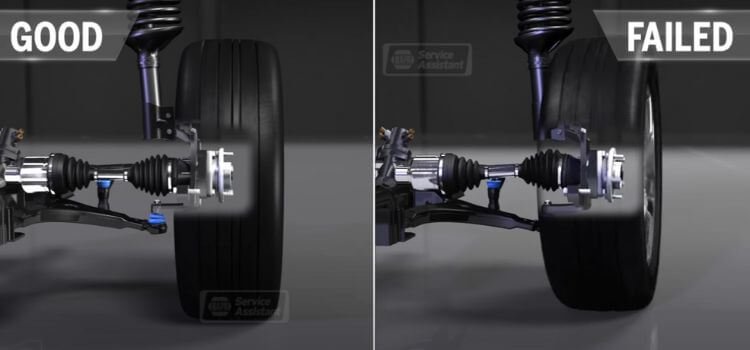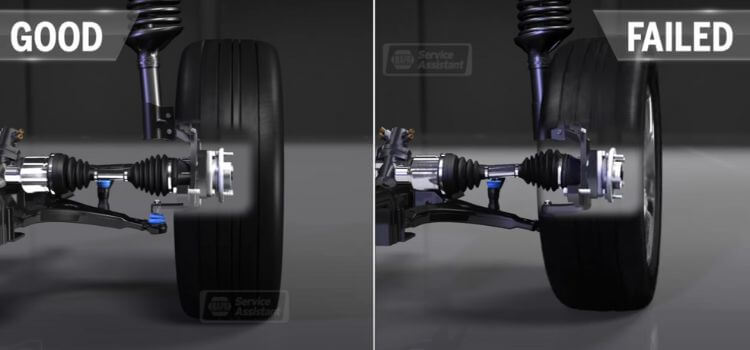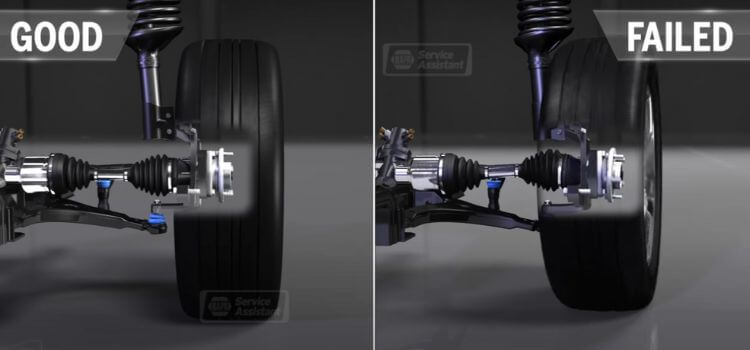As an Amazon Associate, I earn from qualifying purchases
Wheel bearings can go bad due to a variety of factors, including lack of lubrication, water contamination, and excessive heat. Understanding the signs of a bad wheel bearing can help you address the issue before it causes further damage to your vehicle. In this post, we will discuss the common causes of wheel bearing failure and how to recognize the signs of a bad wheel bearing.

What are wheel bearings and their function
Wheel bearings are an essential part of a vehicle’s suspension system. When wheel bearings go bad, they can cause a variety of issues such as a noisy wheel, uneven tire wear, and even the potential for the wheel to come off. Common causes of wheel bearing failure include lack of lubrication, contamination from water or dirt, and general wear and tear.
Signs of a bad wheel bearing

Wheel bearings can go bad due to wear and tear, lack of lubrication, or damage from road debris. When a wheel bearing goes bad, you may notice a grinding or humming noise coming from the wheel, uneven tire wear, or excessive play or looseness in the wheel. Regular maintenance and inspection of your wheel bearings can help prevent issues and keep your vehicle safe on the road.
Causes of wheel bearing failure
There are several reasons wheel bearings can fail, including improper installation, excessive heat or water exposure, lack of lubrication, and general wear and tear. When wheel bearings go bad, you may notice a grinding or humming noise, uneven tire wear, or steering wheel vibration. It’s important to address wheel bearing issues promptly to avoid further damage to your vehicle.
Consequences of driving with a bad wheel bearing

Wheel bearings can go bad due to a variety of reasons, including lack of lubrication, excessive use, or damage from debris on the road. When wheel bearings go bad, they can cause a range of issues such as excessive noise, poor handling, and even a complete loss of wheel function. Driving with a bad wheel bearing can lead to dangerous situations, such as loss of control of the vehicle or even wheel detachment. It is important to have your wheel bearings checked regularly and to address any issues promptly to ensure safe driving.
How to prevent wheel bearing failure
Wheel bearings can go bad due to a variety of factors such as lack of lubrication, contamination by dirt or water, excessive heat, or general wear and tear. To prevent wheel bearing failure, it’s important to regularly inspect and maintain your wheel bearings, keep them properly lubricated, and ensure that they are not exposed to excessive heat or contaminants. Additionally, be mindful of any unusual noise or vibration coming from your wheels, as this may be a sign of wheel bearing issues.
How to replace a bad wheel bearing
When it comes to replacing a bad wheel bearing, it’s important to first understand how wheel bearings go bad. Generally, they can wear out due to constant use, lack of lubrication, or damage from road debris. Once you notice any signs of a bad wheel bearing, such as grinding or humming noises, it’s important to address the issue as soon as possible to avoid further damage to your vehicle. It’s best to consult a professional mechanic for the replacement process, as it requires special tools and expertise.
Conclusion
In conclusion, wheel bearings can go bad due to a variety of reasons such as lack of lubrication, excessive wear and tear, or contamination from water or dirt. If you notice any signs of wheel bearing failure, such as unusual noises or vibration, it’s crucial to address the issue promptly to avoid further damage to your vehicle.
As an Amazon Associate, I earn from qualifying purchases
Leave a Reply